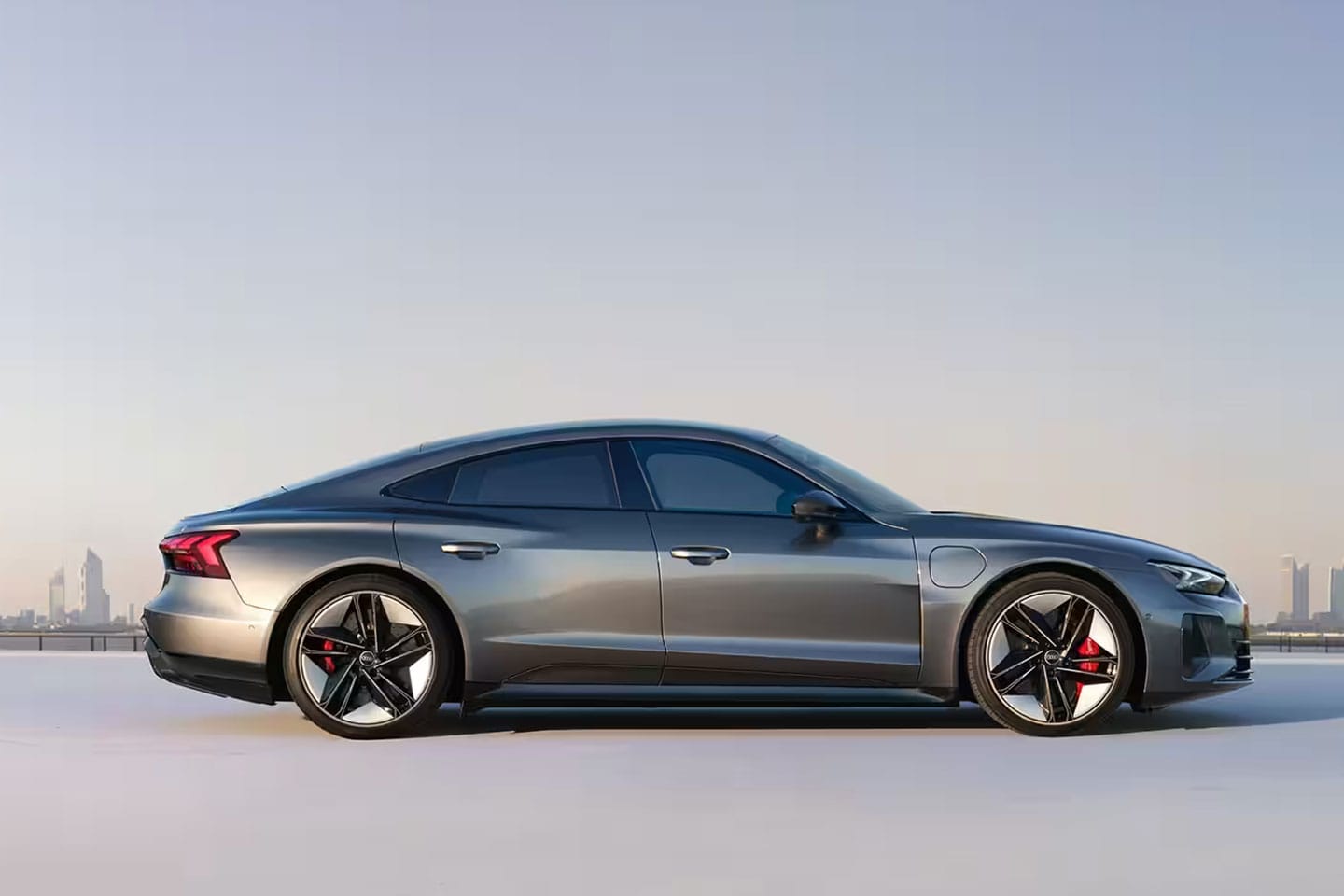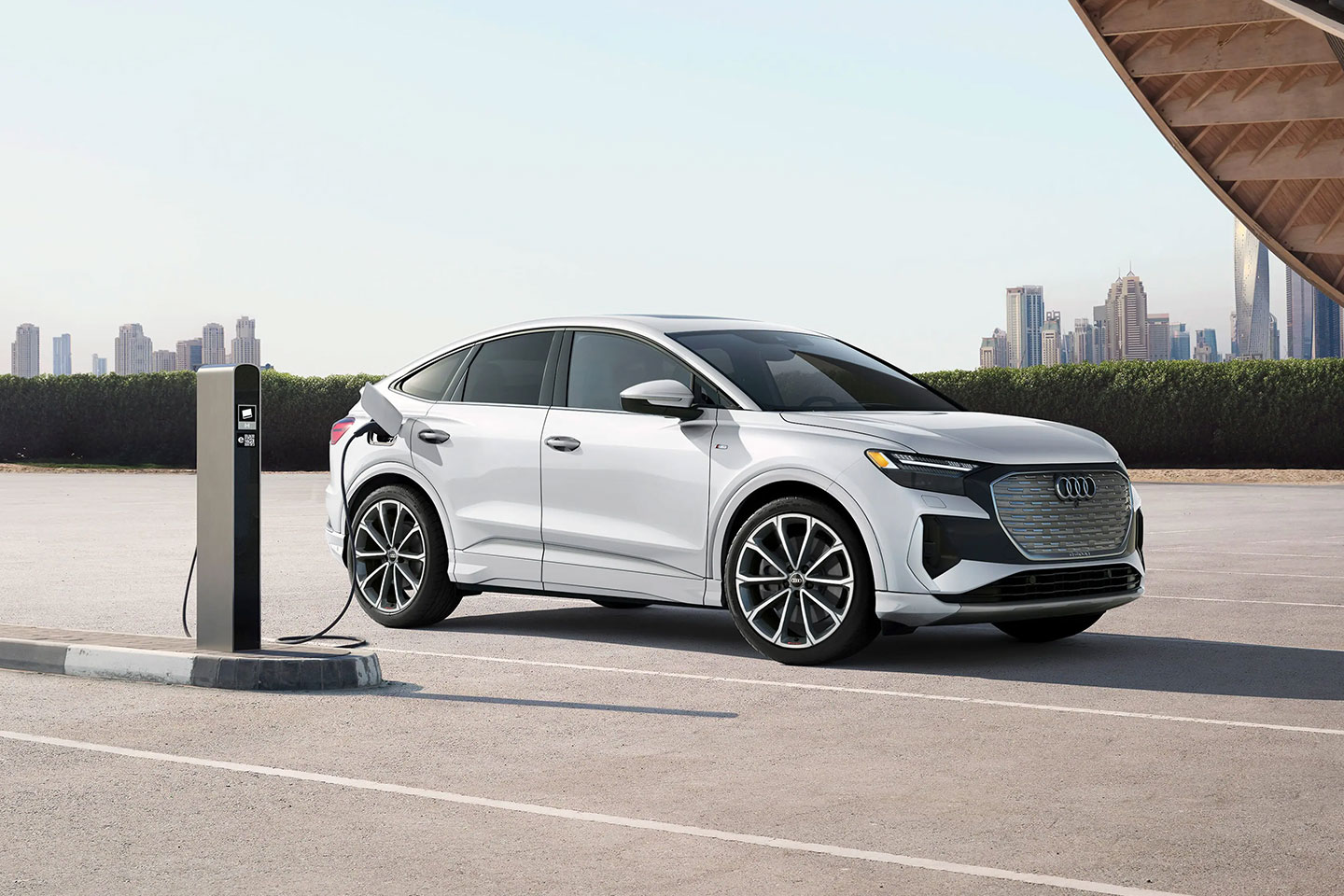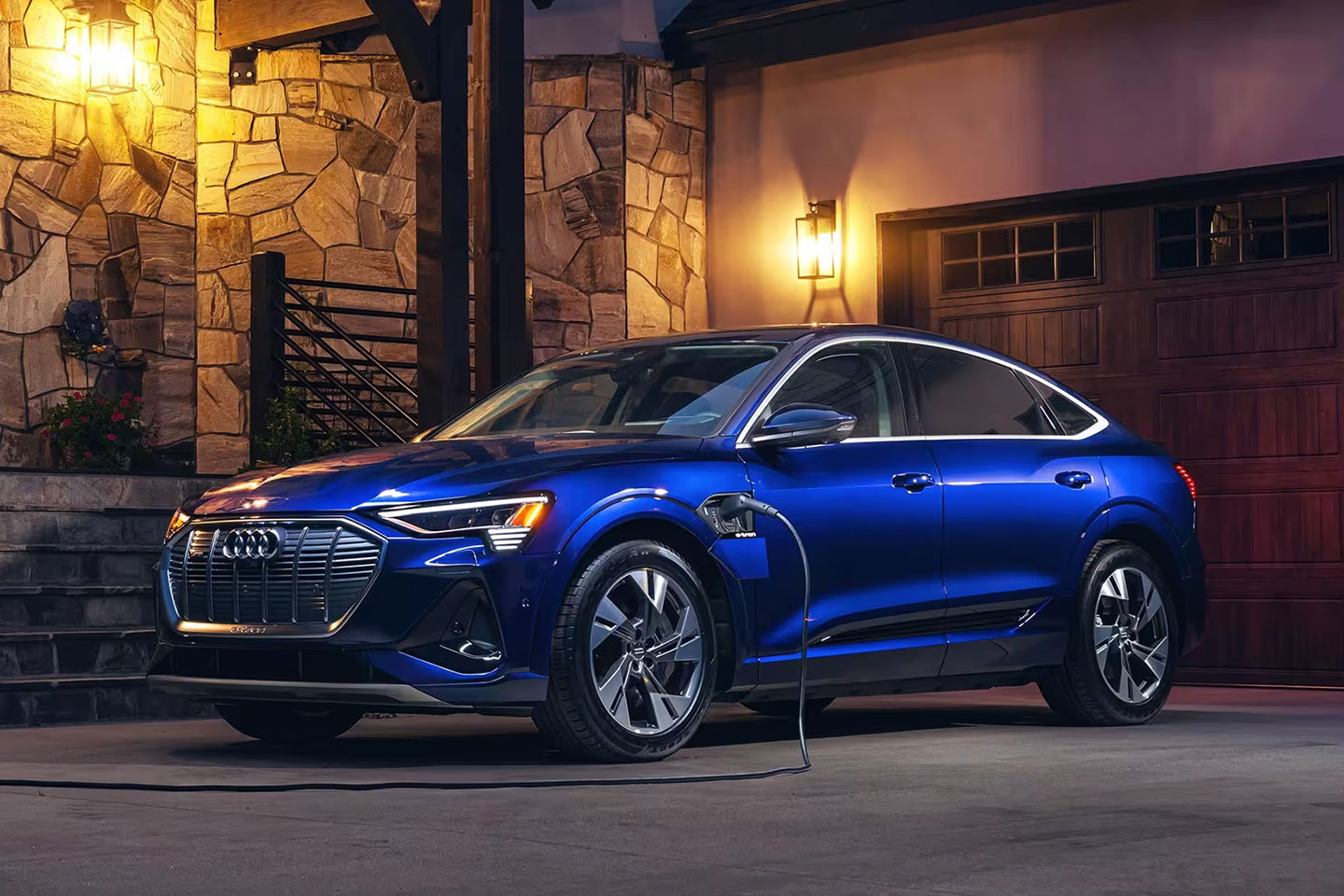What are Electric Vehicles?
GOING ELECTRIC
One of the most widely debated topics of the auto industry right now is electric cars; how they can benefit the environment, how they compare to regular internal combustion engines, and if it's the right choice for any given driver. We're here with all the information to help you make a decision that suits your lifestyle, driving habits, and needs. So, take some time to dive into some information about electric and hybrid vehicles, and compare them to your personal needs to determine if electric is the right choice for you.
Let's start with the acronyms that we will be dealing with.
| BEV | Battery Electric Vehicle |
| PHEV | Plug-In/Hybrid Electric Vehicle |
| ICE | Internal Combustion(Conventional Vehicle) Engine |
Audi has vehicles in each category so we can provide you with the vehicle that perfectly suits your needs.
Total Cost of Ownership
Very few people really add up all the costs to run their vehicle every month or every year. Total Cost of Ownership (TCO) is usually measured over the timeframe we keep our cars and includes the following:
- Purchase cost or car payments (less your trade-in value)
- Energy costs (gasoline or electricity)
- Maintenance and repairs (oil changes, tires, cleaning, etc.)
- Insurance
- Other tolls, fines, accidents

Comparing Electric and Internal Combustion
When comparing an electric vehicle to an internal combustion engine vehicle, it is important to compare vehicles that are similarly positioned in the market.

For instance, a Tesla Model 3 is similar to the Audi Q4 e-tron, while a Volkswagen ID4 is similar to a Toyota RAV4. Sometimes, models have both electric and gas versions of the same car. Examples include the Hyundai Kona and Kona Electric, Kia Niro and Niro electric, Genesis G80 and Electrified G80.
Additionally, it is also important to understand that different vehicles have different specifications. Is the leather interior included? Technology? Sunroof? What about the all-wheel drive for Calgary winters? These values will also help guide your calculations.
An electric vehicle is generally more expensive to buy but much cheaper to run. Therefore, the more miles you drive, the better the results for the electric car will be. The example below shows an average lifespan of a vehicle with the cost of ownership comparing mid-level internal combustion vehicles with electric.
SAMPLE SCENARIO
Here are two different scenarios, based on 3 years, 50,000km ownership, and 9 years, 150,000km ownership, between a RAV4 LE IC (non-hybrid) and a Volkswagen ID4 EV.
(Note the numbers are close estimates.)
Assumptions
Prices: RAV4 LE FWD, ID4 base RWD (with $5,000 federal EV rebate)
RAV4: 8 litres/100km, gas price: $1.70 per litre (see NRCAN website)
ID4: 20kWh/100km, electricity price: 10c kWh (see NRCAN website)
Resale: Estimate based on Canadian Black Book and experience in non-Covid years
Maintenance: 3 year - Services, plus one set of new tires; 9 years - Services - plus 3 sets of new tires. Some extra light repair for both during 9 year period.
Despite the initial higher purchase price, over a period of time, the ID4 works out slightly cheaper over 3 years and considerably cheaper over 9 years.
You may find that you spend more on your coffee each month than electricity for a BEV; the cost is so low you don't even notice it! When considering vehicle costs, it's important to understand the total cost of ownership and how different factors impact the total bill at the end of vehicle ownership.

Sources:
Plug'n drive EV availability in Canada, with comparisons to equivalent IC vehicles
https://ev.plugndrive.ca/vehicles
This calculator from BC Hydro is also helpful
https://electricvehicles.bchydro.com/learn/fuel-savings-calculator/compare
EV ownerships Calculator Spreadsheet
https://mccac.ca/app/uploads/2021-EV-Savings-Calculator.xlsm